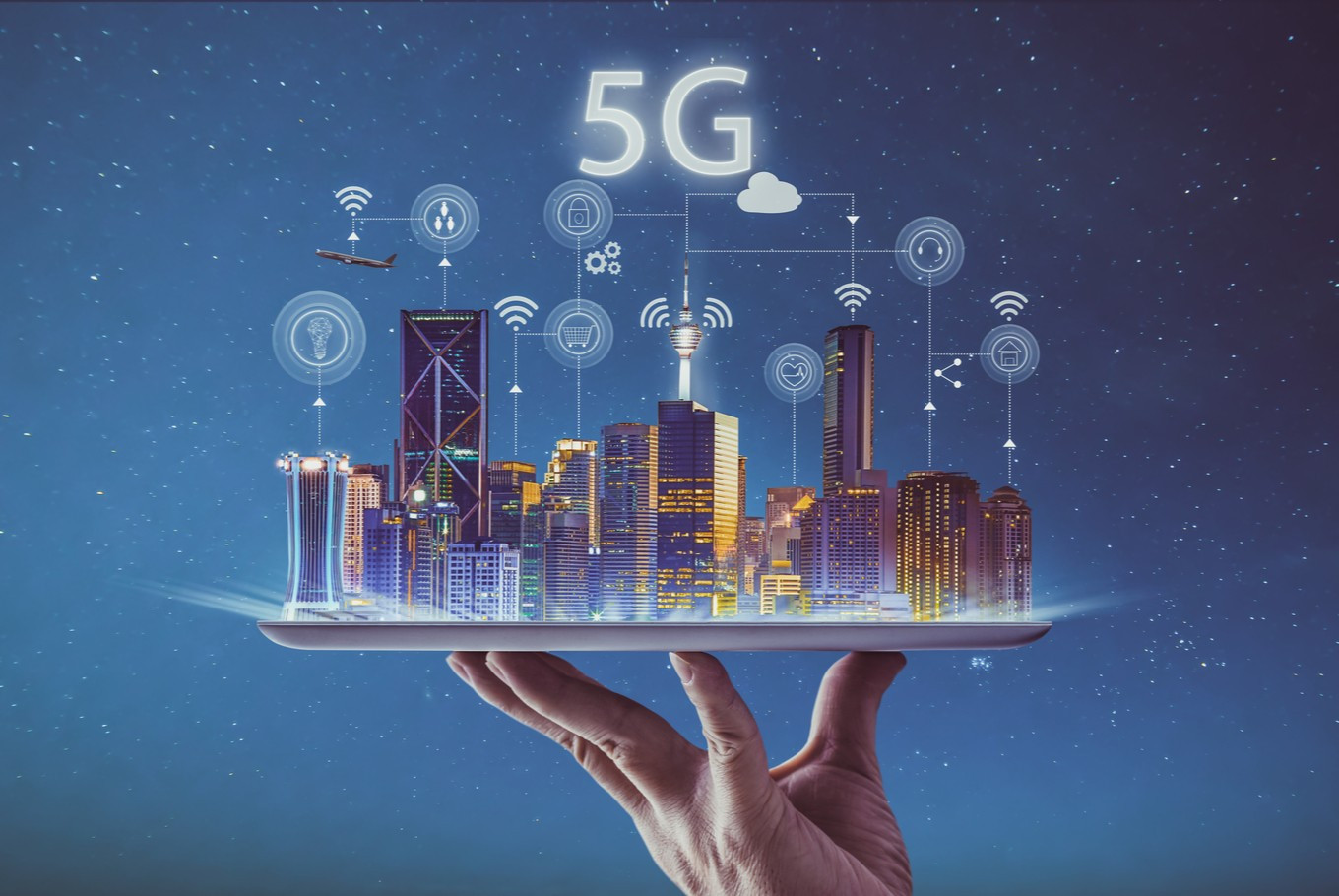Popular Reads
Top Results
Can't find what you're looking for?
View all search resultsPopular Reads
Top Results
Can't find what you're looking for?
View all search resultsEnvisioning Indonesia’s 5G-powered future
Given the size of the manufacturing and services sectors, high number of data users, and the low fixed broadband market in Indonesia, the country has the highest value potential with 5G compared to other ASEAN nations.
Change text size
Gift Premium Articles
to Anyone
A
s an industry, we are well past the 5G hype stage, with many countries and network operators around the world investing significant resources to speed up its deployment and benefit from this latest generation of mobile networking technology. In many countries, initial deployments are already offering early 5G with South Korea, China, Japan, and the United States taking the lead.
Indeed, there’s genuine excitement around the impact and benefits of 5G. In terms of performance gains, 5G networks are expected to deliver orders of magnitude improvements in both speed and latency ultimately giving consumers and businesses richer and more rewarding digital experiences.
However, 5G will do so much more than just speedier content downloads. It will also enable digital transformation and power a whole host of other applications such as the Internet of Things (IoT) and artificial intelligence (AI) across multiple industries like transportation, manufacturing, and healthcare.
With Indonesia set to become one of the world’s most important digital economic powerhouses despite its relatively low fixed broadband teledensity, 5G will play an instrumental role not only in realizing this ambition but also unlocking digital opportunities and growth.
From supporting the Indonesia 4.0 program to building a new technology-infused AI city in Kalimantan, the country could see its economy transition from a resource-based to a knowledge-based one. In fact, this increased reliance on IoT, automation, cloud-powered software, and data analytics are what will create Indonesia’s digital economy, which is expected to reach $133 billion by 2025.
Key to accelerating Indonesia’s digital transformation is the development and integration of 5G infrastructure to support the bandwidth required for the digital applications to function. The adoption and implementation of these applications will result in a rise in the number of interconnected devices, sensors and systems, but more significantly, an exponential growth in data volumes.
With very low and guaranteed end-to-end latency – the delay it takes for data to traverse the network – 5G networks will enable a new suite of tactile-based applications and use-cases, such as augmented/virtual reality.
Constant, seamless connectivity is critical in enabling the sharing of data to provide insights for critical decision-making. For instance, in the new capital city – where mass transportation is anticipated to be autonomous – 5G will power vehicle-to-vehicle or vehicle-to-infrastructure communications, delivering real-time updates on road traffic conditions to drivers, resulting in better use of road space and reductions in traffic congestion – a longstanding problem that has plagued Jakarta.
Similarly, with aims to make Indonesia one of the 10 biggest economies by 2030 under Indonesia 4.0, smart factories of the future will rely on 5G to enable fast and reliable real-time data transfer to acquire actionable insights. Agricultural businesses and farmers can also leverage 5G for remote monitoring on soil moisture levels and weather conditions and lift productivity and efficiency levels.
Given the size of the manufacturing and services sectors, high number of data users, and the low fixed broadband market in Indonesia, the country has the highest value potential with 5G compared to other ASEAN nations.
Besides faster internet connections for consumers, enterprises must stand ready to capture the potential opportunities that 5G will bring as it poised to boost the adoption of digital technologies and improve everything from healthcare to retail to agriculture.
For 5G to meet the demands for bandwidth and connectivity speeds necessary to power digital innovations, networks of the future need to be smart, automated, and adaptable. As 5G scales, network operators and communications service providers will increasingly need to rely on machine learning (ML) and AI to fully automate operational processes.
AI-assisted network management helps network operators understand when specific network resources are near capacity and recommend scaling them up to meet growing customer requirements. It is also critical for predicting situations like a network fault before it occurs and taking corrective actions to avoid impacting customers, for example, data transmission delays for emergency respondents.
While improvements to digital and connectivity infrastructure is a current priority in Indonesia, preparations for 5G need to take place soon to ensure the archipelago of around 17,000 islands can support the digital economy vision. In fact, the transition to a 5G-enabled smart nation requires strategic shifts on multiple fronts to acquire the true benefits of 5G. This includes management of spectrum, the availability of 5G-enabled devices, as well as a concerted effort between regulators, telecom operators and users.
Surely 5G rollouts are fast gaining traction across the world. However, to ensure commercial success, it is crucial that 5G serves as an enabler, where businesses can leverage for growth and capture value, rather than treat it as a simple connectivity upgrade. Imagine how 5G can improve cloud services experience for many more Indonesian enterprises, or help control mining equipment that is complex and potentially risky from a remote location.
The possibilities with 5G are limitless. When done right, Indonesia could be one of Southeast Asia’s key digital technology hubs.
***
Chief technology officer for Asia-Pacific and Japan and senior director for strategic business development at Ciena










